Thinking of Macau, most people think
of Casinos, and that is obviously a very justified impression. This small area
on the southern tip of China’s pearl river is one of the most densely populated
areas in the world, and it is also the place on this planet with most gambling
revenue (seven times that of The Strip in Las Vegas!!! https://money.cnn.com/2014/01/06/news/macau-casino-gambling/).
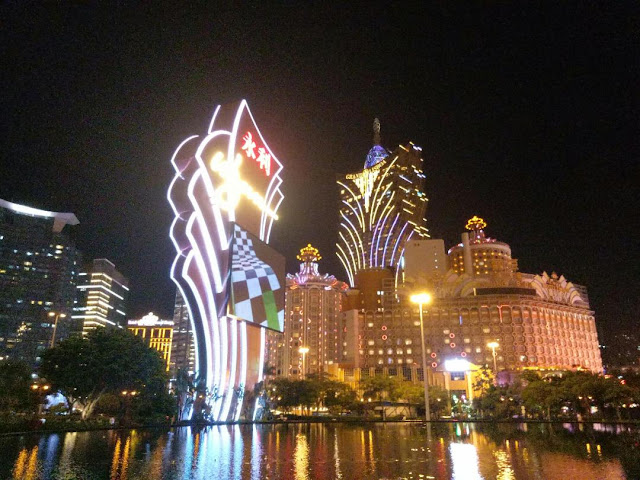 |
| Night view towards Wynn Casino and the casino of Grand Lisboa, Macau |
Of course a trip to Macau is very
likely to include a visit to one or more of the casinos, if not for gambling
then for people watching, shopping, eating and sightseeing (replicas of Venice,
Paris etc.).
I have had the pleasure to visit
Macau more than a handful times, and what I really like is to look into the
city and the Macau that was there before gambling because it’s major industry.
Below I would outline some attractions for the visitor who wants to understand
Macau before and beyond the casinos.
Macau was not only one of the first European settlement in the
Far East, it was also the last one to be left when Portugal handed the city
back to China in 1999 after more than 400 years of Portuguese rule. Some of the
areas in the old city has a clear Portuguese influence in terms of
architecture, one will also see that street and place names are written out in
Portuguese as well as in Chinese. Portuguese still maintains its status as an
official language next to the Cantonese.
The Macau peninsula area is where one finds the historic
centre of Macau with about 25 UNESCO world heritage sites, the central spot in
the old town is the Largo do Senado (Senado Square) where one is just a few
steps away from one of the most famous landmarks of Old Macau, the ruins of St.
Paul cathedral.
 |
| Largo do Senado at the centre of the historical part of the town, Macau |
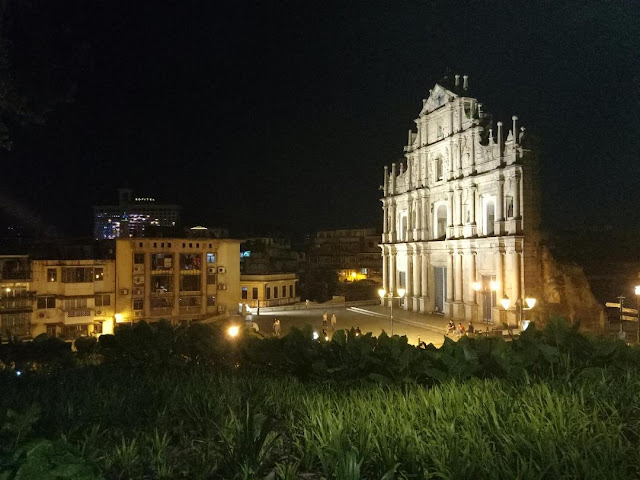 |
| The ruins of St. Paul at night, Macau |
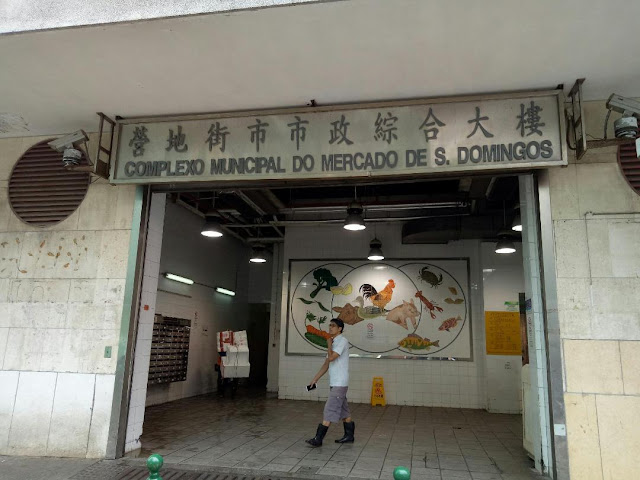 |
| Mercado Municipal de Sao Domingos (Municipal Market), Macau |
Walking away from the area around the Senado Square there
are two places I would warmly recommend for an understanding of the history of
Chinese Macau, the rather famous A-Ma temple being one, and the second one
being the other overlooked museum of Casa do Mandarim.
The A-Ma temple dates back to the 15th century and is dedicated to the sea goddess Mazu.
This temple is said to have given the name to the city (as the place was called A-ma gok (Pavilion of the mother), and the Portuguese transcribed this as Macau upon their arrival).
The A-Ma temple dates back to the 15th century and is dedicated to the sea goddess Mazu.
This temple is said to have given the name to the city (as the place was called A-ma gok (Pavilion of the mother), and the Portuguese transcribed this as Macau upon their arrival).
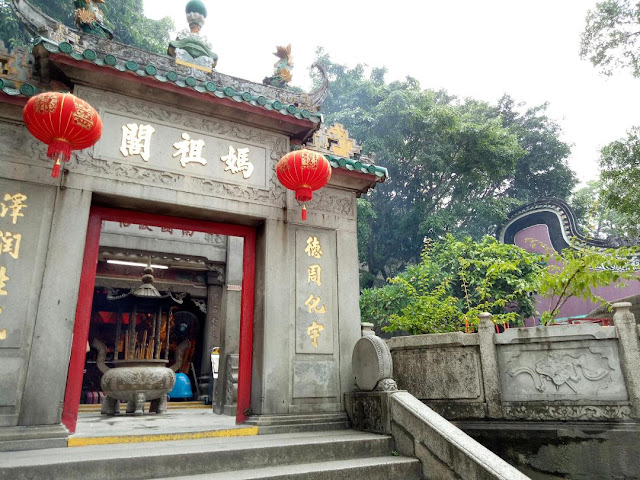 |
| A-Ma Pavillion, Macau |
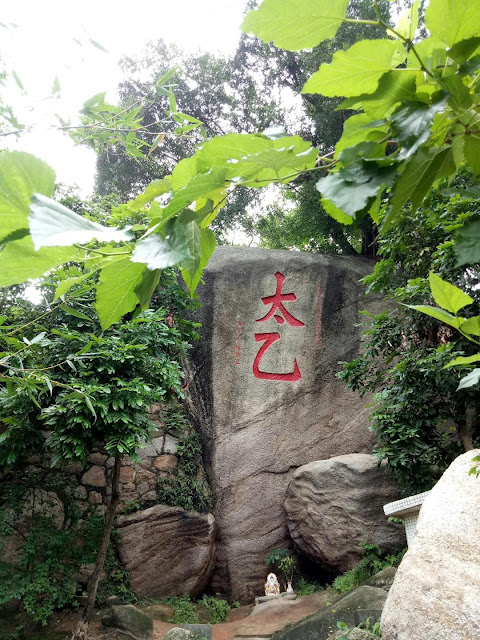 |
| Inside the A-Ma temple, Macau |
 |
| A-Ma temple, Macau |
Casa do Mandarim (Mandarin’s house) is a newer building from the 19th
century and is built in a mainly Cantonese style but has distinct European
features as well. At points in time it was housing hundreds of residents, and
it would give the visitor an insight into Chinese life in colonial Macau.
 |
| Casa do Mandarim interior, Macau |
 |
| Entrance to Casa do Mandarim, Macau |










You are correct. Macau has the unique distinction of being the 'first' and 'last' European colony in Asia. Glad you have enjoyed some of the World Heritage area during your visits.
ReplyDeleteFantastic blog! Do you have any tips and hints for aspiring writers? I’m planning to start my own website soon but I’m a little lost on everything. Would you propose starting with a free platform like WordPress or go for a paid option? There are so many options out there that I’m completely overwhelmed .. Any suggestions? Many thanks! 안전놀이터
ReplyDeleteThank you for such a well written article. It’s full of insightful information and entertaining descriptions. Your point of view is the best among many. bet pt
ReplyDelete